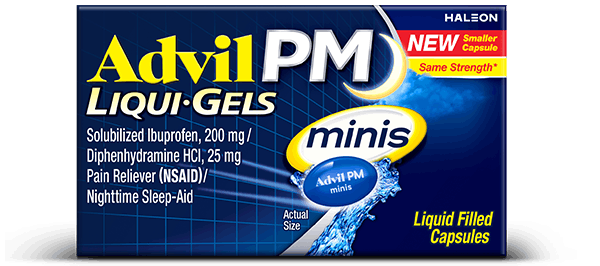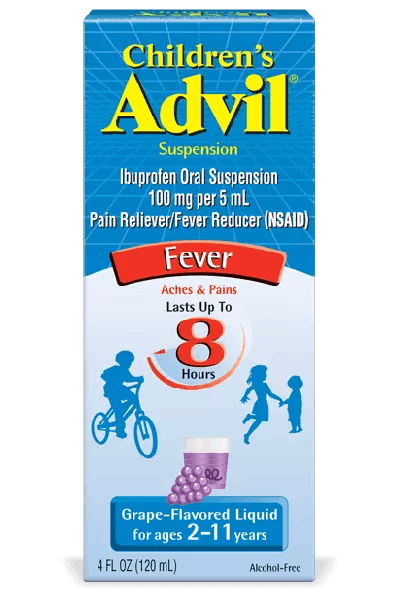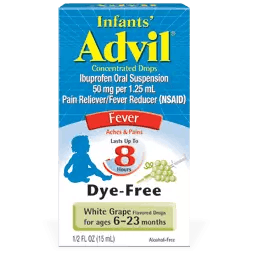Is Advil an Anti-Inflammatory?
Minor Arthritis & Joint Pain
What is Inflammation?
Inflammation is your body’s response to toxins, infections and injuries.1 Inflammation can be caused by a number of factors, including lifestyle and dietary habits. Swelling and redness are signs of inflammation, although there can be other signs or no signs at all.1
Anti-Inflammatory Benefits of Advil
Is Advil good for inflammation? The answer is slightly complicated. The OTC dose found in Advil products does not treat inflammatory conditions broadly. However, while Advil is not an anti-inflammatory pill, Advil is a pain reliever that is proven to be effective in relieving pain associated with inflammation. Advil can help treat pain caused by arthritis, pain caused by illness (such as cold or flu), menstrual pain, and more.
How Does Advil Work?
Advil products can be a good option for treating inflammation-related pain. Symptoms of acute inflammation include pain, muscle aches, and headaches.2 Pain relievers like Advil Tablets and Advil Liqui-Gels can help treat these symptoms by working at the sites of injury and inflammation. Advil non-selectively blocks COX-1 and COX-2 to prevent prostaglandin production, which prevents the body’s pain signals from firing off. Advil products provide powerful, fast-acting pain relief for headaches, backaches, and minor arthritis, and other joint pain.
Other Ways to Help Fight Inflammation
Anti-inflammatories or over-the-counter pain medications like Advil are not the only options if you suffer from inflammation. There are several changes you can make in your day-to-day routine to help fight inflammation:
- Diet. Eat a healthy diet filled with anti-inflammatory foods. Foods that are rich in antioxidants and polyphenols are great for helping to reduce inflammation.3 Tomatoes, olive oil, leafy vegetables, nuts, fatty fish, and fruits are great options. Avoid foods that can cause inflammation, such as refined carbohydrates like white bread, red meat, soda, and margarine.3
- Exercise. Staying active and regularly exercising can help prevent inflammation. Making time for just 30 to 45 minutes of exercise a day at least four times a week can help with inflammation.1
- Rest. Getting at least seven to nine hours of sleep each night can help prevent or reduce inflammation.2
- Reduce stress. Managing stress can help reduce inflammation and improve your overall health. Try meditation, deep breathing exercises or other methods of relaxing.1
- Limit substances. Frequent alcohol consumption and smoking can cause or worsen chronic inflammation.2 Reducing these habits or quitting entirely may improve your symptoms.
Inflammation risk can sometimes be reduced with lifestyle changes or a healthy diet filled with anti-inflammatory foods. However, when inflammation is unavoidable and contributing to pain, Advil products can provide effective pain relief. Learn more about Advil uses or explore our products to learn more.
Source Citations:
1. Six Keys to Reducing Inflammation. https://www.scripps.org/news_items/4232-six-keys-to-reducing-inflammation. Accessed 6/29/21. Referenced text is indicated in source PDF.
2. All about inflammation. https://www.health.harvard.edu/staying-healthy/all-about-inflammation. Accessed 6/29/21. Referenced text is indicated in source PDF.
3. Foods that fight inflammation. https://www.health.harvard.edu/staying-healthy/foods-that-fight-inflammation. Accessed 6/29/21. Referenced text is indicated in source PDF.








